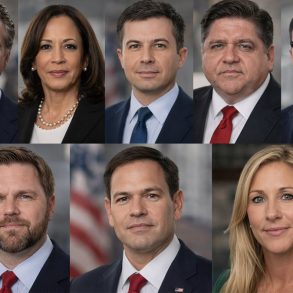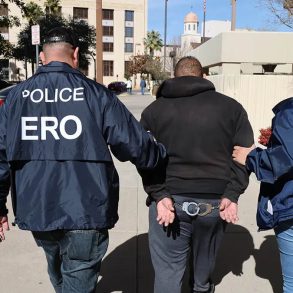A trove of newly declassified FBI documents has revealed that the bureau deliberately blocked an investigation into Chinese election interference in 2020 to protect then-FBI Director Christopher Wray from the political fallout and to avoid contradicting his public testimony to Congress. The documents and emails, which were obtained and released by current FBI Director Kash Patel, show that field agents warned suppressing the evidence could be both dangerous and politically motivated, yet their warnings were ignored.
The Chinese Election Interference Scheme
The entire episode began when the FBI’s Albany Field Office received credible intelligence that the Chinese Communist Party had created “a large amount” of fake U.S. driver’s licenses. According to declassified records, these counterfeit IDs were allegedly produced using data harvested from millions of TikTok accounts and were intended to help “tens of thousands of Chinese students and immigrants sympathetic to the Chinese Communist Party to vote for U.S. Presidential Candidate Joe Biden, despite not being eligible to vote in the United States.”
This intelligence was deemed significant enough to be compiled into an official FBI Intelligence Information Report, or IIR, which was circulated internally on September 25, 2020.
Wray’s Testimony and the Recall of the Report
The day before the report was issued, on September 24, 2020, FBI Director Wray had testified before Congress. He told lawmakers, “We have not seen historically any kind of coordinated national voter fraud effort in a major election, whether it is by mail or otherwise.” Wray insisted that if the FBI found any evidence of such a scheme, “it would be something that we would investigate seriously… and aggressively.”
Yet, almost immediately after the Albany Field Office sent out their report, FBI Headquarters in Washington ordered it recalled. According to Assistant FBI Director Marshall Yates, the recall happened within minutes and was “abnormal.” In a letter to Senate Judiciary Committee Chairman Chuck Grassley, Yates wrote, “The rationale provided to Albany staff for the recall was that Headquarters deemed the report not ‘authoritative,’ but this characterization was met with disagreement by those in the Albany office.”
Internal communications show that Albany staff felt deeply uncomfortable with the decision. One email read, “Most concerning to me is stating the reporting would contradict with Director Wray’s testimony. I found this troubling because it implied to me that one of the reasons we aren’t putting this out is for a political reason, which goes directly against our organization’s mission to remain apolitical and simply state what we know.”
Field Agents Protest the Suppression
After the report was recalled, the Albany agents were ordered to re-interview their source. The re-interview did not undermine the original claims. Instead, the source remained “very, very confident,” and an Albany officer “was able to partially corroborate some of the information s/he provided.”
Despite this, FBI Headquarters still refused to republish the report. An email from one Albany agent on October 1, 2020, expressed frustration: “I’m not trying to be a pain on this, but after taking some time thinking this over I just want to voice my opinion and concerns on this issue and make it clear I do not agree with the reasoning for not putting this out.” The agent argued that everyday operational requirements were being used as excuses to bury the intelligence.
In another message, an agent wrote, “My concern is that I think it gets dangerous if we cite potential political implications as reasons for not putting out information. We are starting to drift too far into being the sole decider for the USIC (United States Intelligence Community) regarding when information we gather is, or is not, valid.”
New Restrictions Imposed
In response to the controversy the report triggered internally, FBI Headquarters imposed an unprecedented new policy. Yates explained, “Finally, because of this episode, FBI Headquarters set a new requirement on the field for the 2020 election; ‘all raw reporting concerning the election will now require HQ coordination, which was not required before.’”
This rule effectively meant that all election-related intelligence would be filtered and approved by top leadership in Washington before it could be shared or acted upon.
Senator Chuck Grassley said this decision “smacks of political decision-making and proves the Wray-led FBI to be a deeply broken institution.” He continued, “Ahead of a high-stakes election happening amid an unprecedented global pandemic, the FBI turned its back on its national security mission. Chris Wray’s FBI wasn’t looking out for the American people—it was looking to save its own image.”
The Bigger Picture
The alleged Chinese scheme also coincided with large shipments of counterfeit IDs entering the United States. From January to June 2020, U.S. Customs and Border Protection officers in Chicago seized nearly 20,000 fake driver’s licenses, mostly from China and Hong Kong. Though it remains unclear if these specific shipments were linked to the Albany report, the scale of fraudulent documents arriving from China added credibility to the warnings.
Despite this, the Foreign Influence Task Force—the FBI unit charged with investigating Chinese election meddling—did not aggressively pursue the intelligence. Yates admitted in his letter to Grassley, “We have found no information to indicate that FITF-China aggressively investigated the reported information, despite corroborating intergovernmental reporting and logical investigative leads.”
Director Kash Patel, who authorized the release of the suppressed documents, has pledged to bring more transparency to the bureau. “We will be stewards of taxpayer dollars,” Patel said in a statement, “and we will hunt down bad actors in every corner of this planet.”
Grassley praised Patel’s actions, saying, “Director Patel’s willingness to work with me to establish renewed transparency and accountability is a critical part of that process, and I applaud him for his efforts.”
Experts have warned that the episode could do lasting damage to public trust. Some commentators say the decision to bury the report could fuel conspiracy theories and further erode faith in elections. Others argue that even if the intelligence later proved unreliable, it should have been fully vetted rather than suppressed because it was politically inconvenient.
Lawmakers are now weighing new reforms to ensure raw intelligence is shared across agencies without top leadership filtering it first. Legal experts are also studying whether the instructions to destroy copies of the report violated any laws.
Grassley summed up the stakes simply: “One way or the other, intelligence must be fully investigated to determine whether it’s true or if it’s just smoke and mirrors.”
As the investigation continues, the controversy has exposed a deeper problem: an institution charged with protecting democracy allowed political considerations to interfere with that mission at the very moment the country needed it most. Whether the FBI can regain the public’s trust will depend on what happens next and whether those responsible are held accountable.
NP Editor: None of the reporting on this indicates prosecution of Wray, who seems to have lied to Congress. One would think that a lie that attempts to cover up election interference by a foreign power and the attempt by a government agency to enhance Biden’s election chances would be serious enough to pursue.







